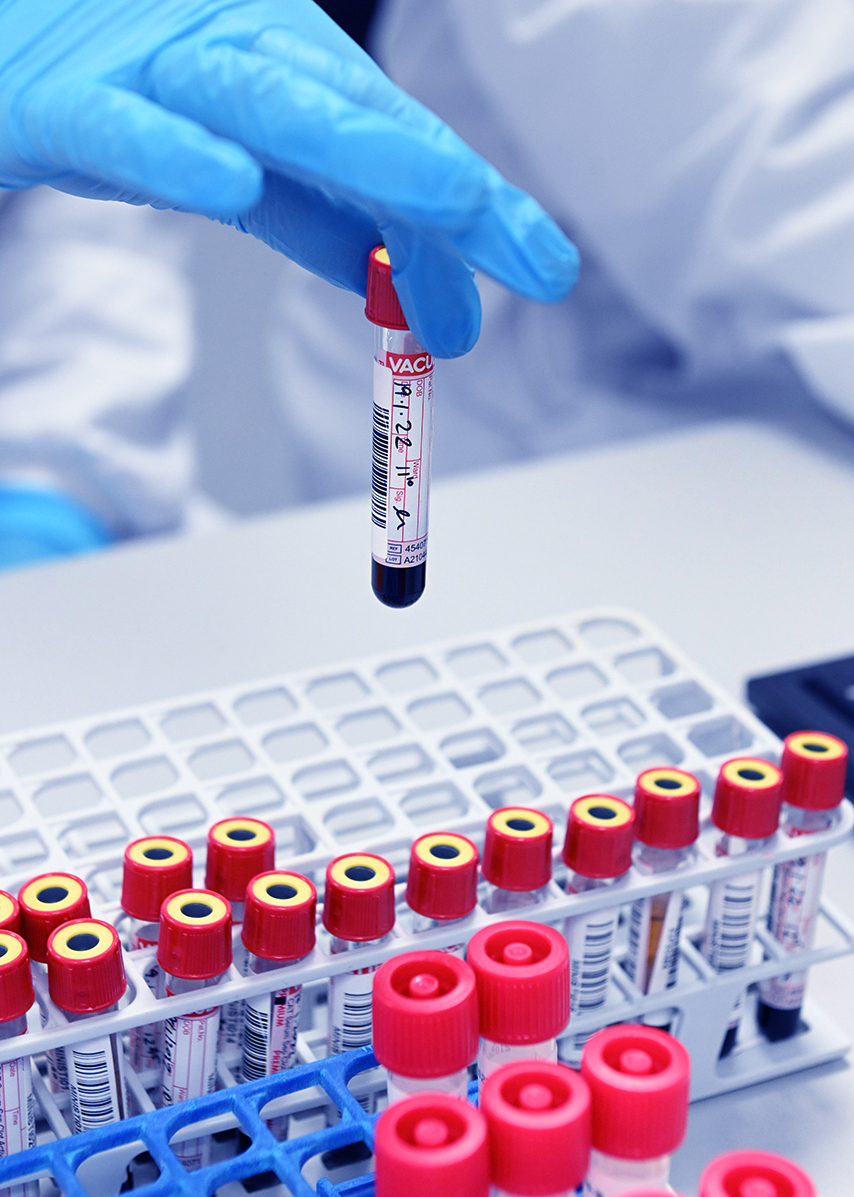Measured total calcium in serum consists of approximately 15% bound to organic and inorganic ions, approximately 40% bound to albumin and the remaining as biologically active ionized calcium. As a result, the total serum calcium concentration in patients with low or high serum albumin levels may not accurately reflect the physiologically important ionized, or free calcium concentration. Adjusted calcium is an estimate of the total calcium concentration, had the serum albumin concentration been normal.
Adjusted Calcium (Calculated)

Adjusted Calcium (Calculated)
Calcium (Ca) blood tests measure how much calcium is in your blood. Your healthcare provider can use this test to help diagnose and watch many conditions.
Corrected calcium concentration estimates the total concentration as if the albumin concentration was normal – usually taken as 40g/l. A typical correction is that for every 1g/l that the albumin concentration is below this mean, the calcium concentration is 0.02mmol/l below what it would be if the albumin concentration was normal; i.e. corrected [Ca] = measured [Ca] + {(40 – [albumin]) * 0.02}.
Causes of Hypercalcaemia include
- Primary hyperparathyroidism
- Multiple myeloma
- Sarcoidosis
- vitamin D intoxification
- Tuberculosis
- Lithium treatment
- periods of prolonged immobilisation
- acute renal injury
Causes of Hypocalcaemia include
- Inadequate Vitamin D
- Hypoparathyroidism post operatively or post radiotherapy
- Pseudohypoparathyroidism or pseudopseudohypoparathyroidism
- Hyper or hypomagnesemia
- Renal disease : excessive calcium excreted
- End-stage liver disease causing vitamin D inadequacy
- Bone disease – osteomalacia in adults or rickets in children
- Sclerotic metastases
- Genetic causes: congenital absence of parathyroid glands, Di George syndrome, or Fanconi syndrome
- Pancreatitis
- Drugs (eg, rifampicin, antiepileptics, calcitonin, bisphosphonates, calcitonin, corticosteroids, chloroquine)
Case Study
Delivering True Innovation
Our Services




5mL venous serum or plasma
Enfer Medical
Tests/Assays
Enfer Medical offers calculated adjusted calcium test using calcium and albumin.


Patient
Request Form
For clients using the Enfer Medical Client Portal, the Enfer Medical Patient Request Form (PRF) will be generated when you have completed your “Test Request” within the portal linked below.
Please note that samples suspected of containing high risk pathogens such as Mycobacterium tuberculosis should be clearly identified on the form and packed separately from other samples.



Results are available next working day.
This assay is available seven days a week.
Packaging
The packaging/preparation of samples for delivery to the laboratory are required to be in adherence to all national regulations for the safe transport of biological materials. HSE guidance can be reviewed HERE.
There are specific packaging instructions and labelling requirements requiring triple packaging including:
- Primary leak-proof container – tube or vial containing the sample.
- Secondary watertight container, with absorbent material, intended to protect the primary container.
- Outer container protects the secondary container.
- Patient Request forms must be placed between the secondary container and the outer shipping container.
Further information on the packaging/preparation of samples for delivery to the laboratory is contained within the Enfer Medical Laboratory User Manual which clients are provided with.


Storage & Stability
Specimens must be tested within 7 days of collection and stored at 2-8°C.


Samples
In addition to the packaging of samples, the transport/delivery of clinical samples to the laboratory is required to be in adherence to all national regulations for the safe transport of biological materials. Enfer Medical provides a fully compliant logistics service, aligned with clients’ testing requirements.
Prompt transport of specimens:
To ensure prompt testing of samples and release of results within the published test turnaround times, samples should arrive to the laboratory by 18:00. Test turnaround time is measured from receipt of the sample at the laboratory until the time the authorised results are reported to users.
of Samples
In rare cases specimens may not be suitable for testing on arrival to the laboratory. In that case the sample will be rejected at the receipt stage and the service user will be notified immediately and an explanation as to why the sample could not be processed will be provided. Reasons why samples cannot be processed include but are not limited to:
- Samples received beyond the stability limits and/or not at the correct temperature indicated for each test.
- Incorrect sample type received.
- Leaking samples, sample not received or sample insufficient for analysis as stated below within sample requirements.
- Non-compliant samples or request forms i.e. those missing sample date information, missing sample test request and/or missing sample site/type information.
- Samples received without the necessary patient identifiers.
Our Services




Quantitative results for Adjusted Calcium (Calculated) are reported in numeric value in mmol/L. Please contact us for more information on the reference ranges used at Enfer Medical.
Critical results are communicated in accordance with the Communication of critical results for patients in the community- national laboratory handbook CSP041/2019.
Accessing
Your Results
Following receipt at the Laboratory, results should be available on the next working day and will be reported to the referring clinician via the Enfer Medical Client Portal or in a format agreed with clients.
Established clients can login to the portal using the link above.




